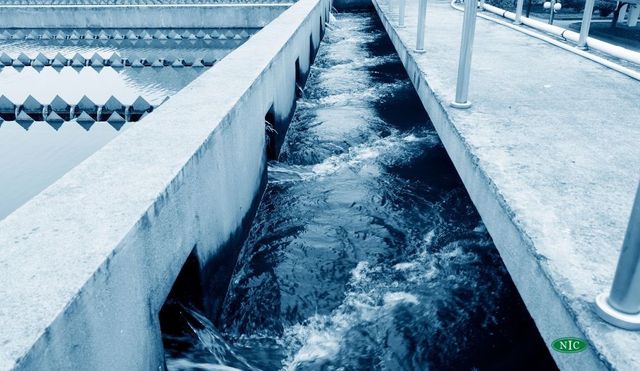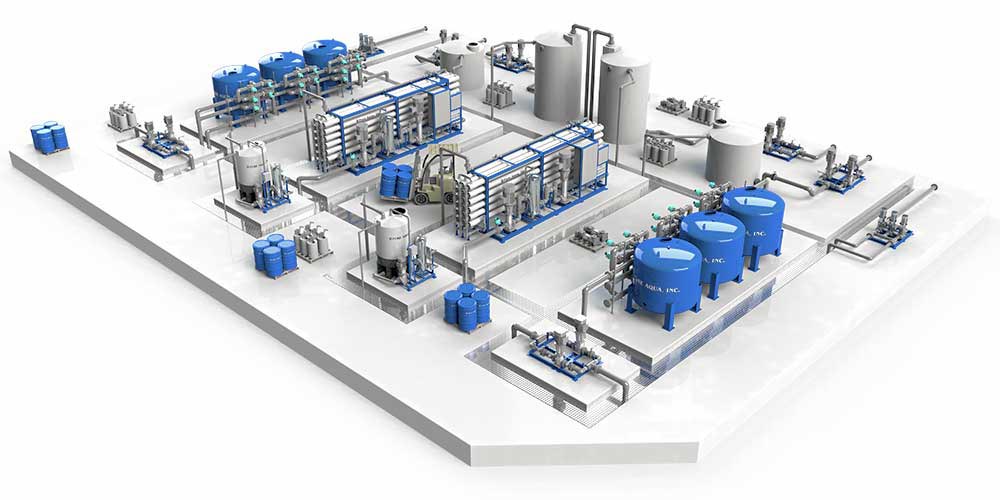Exploring Water Technology Startups: How They Change Sustainable Solutions
Water Technology startups are arising as important players in the quest for sustainable solutions to global water concerns. These firms take advantage of innovative technologies to boost water effectiveness and administration. Their contributions address pushing difficulties such as scarcity and contamination. Despite their possibility, they deal with various barriers that might impact their success. Recognizing these dynamics loses light on the future of water sustainability and the function these startups might play fit it.
The Relevance of Water Technology in Today's World
As international water deficiency escalates, the relevance of water Technology ends up being progressively evident. Water Technology plays an important duty in attending to the obstacles presented by reducing fresh water sources and increasing need. It includes a wide series of technologies, including innovative filtration systems, wastewater therapy modern technologies, and smart irrigation remedies. These developments not only boost the effectiveness of water use yet also advertise sustainable techniques across various industries, consisting of agriculture, market, and city advancement.
Furthermore, the importance of water Technology prolongs past source administration. It fosters strength against environment adjustment impacts, such as dry spells and floods, by providing adaptive options for water preservation and monitoring. Furthermore, it sustains public wellness by ensuring access to risk-free and tidy drinking water. As the globe encounters growing water-related difficulties, the combination of cutting-edge water innovations is necessary for cultivating sustainable advancement and protecting water accessibility for future generations.
Ingenious Solutions From Water Tech Startups
While conventional approaches to water management have served their purpose, a brand-new wave of water technology startups is transforming the industry with cutting-edge remedies (Water Technology Startups). These companies utilize cutting-edge technologies to resolve pushing water problems, such as shortage, contamination, and inefficient circulation. Lots of startups utilize expert system and machine learning to maximize water use and anticipate demand, resulting in more sustainable methods
Furthermore, a number of companies concentrate on creating sophisticated purification systems that eliminate contaminants and make water safe for consumption. Others discover decentralized water therapy technologies, allowing communities to handle their water sources a lot more efficiently. Furthermore, some start-ups are pioneering smart watering services that minimize water waste in farming, promoting environmental conservation.
Case Studies: Successful Water Technology Startups
Many water Technology start-ups have become leaders in addressing worldwide water obstacles via innovative techniques. One remarkable example is Xylem, which focuses on water analytics and wise framework to optimize water use and lower waste. Their solutions have been carried out in different municipalities, demonstrating substantial improvements in water management efficiency.
Another successful startup, No Mass Water, has actually created solar-powered hydropanels that remove water vapor from the air, giving lasting alcohol consumption water in deserts. Water Technology Startups. This Technology has been deployed in a number of countries, guaranteeing neighborhoods have accessibility to tidy water
Last But Not Least, AquaVenture Holdings runs a diverse portfolio of water-as-a-service services, attending to water shortage with desalination and wastewater treatment. Their jobs have actually shown vital in areas facing severe water scarcities, showcasing the potential of innovative water technologies to create lasting, positive influences. These study highlight the transformative capacity of start-ups in the water Technology industry.
The Role of Smart Technology in Water Monitoring
Smart Technology plays an important function in modern-day water administration by leveraging IoT applications to maximize source usage. Data analytics enhances efficiency by giving workable insights, while remote monitoring solutions make it possible for real-time oversight of water supply. With each other, these developments change just how water is handled, promoting sustainability and functional efficiency.
IoT Applications in Water
As water scarcity and monitoring difficulties heighten worldwide, the assimilation of Web of Points (IoT) applications has become an essential service in optimizing water resources. IoT Technology facilitates real-time tracking and analysis of water supply, enabling much more reliable usage and administration. Sensors deployed in numerous water facilities can track top quality, flow prices, and leakage, giving useful information to stakeholders. This data encourages customers and utilities to make enlightened choices, reducing waste and enhancing preservation efforts. Furthermore, clever irrigation systems use IoT to maximize water distribution for agriculture, making sure that plants obtain the right amount of water at the correct time. Generally, IoT applications are transforming typical water management methods, cultivating sustainability and resilience in water resource systems.
Data Analytics for Effectiveness
Using data analytics is necessary for boosting efficiency in water management. Water Technology startups are increasingly utilizing advanced analytics to optimize resource allocation and minimize waste. By assessing data from different sources, these start-ups can determine patterns and trends that inform much better decision-making. As an example, anticipating analytics can forecast water need, permitting energies to adjust supply accordingly, therefore decreasing excess and scarcities. Furthermore, real-time data handling enables the immediate discovery of leakages and inefficiencies within circulation systems, greatly lowering functional expenses. Data-driven understandings equip stakeholders to execute targeted conservation techniques, promoting sustainable techniques. Essentially, integrating information analytics into water management not just enhances operations but likewise promotes lasting sustainability in water source usage.
Remote Surveillance Solutions
While typical water administration systems commonly have a hard time with inefficiencies, remote tracking solutions are changing exactly how water resources are managed. These cutting-edge innovations make it possible for real-time data collection and evaluation, allowing stakeholders to check water high quality, circulation rates, and use patterns from afar. Using sensing units and IoT gadgets, remote monitoring offers prompt insights that assist in proactive decision-making. This shift not only boosts functional effectiveness yet also advertises sustainability by decreasing water waste and maximizing source allotment. In addition, remote monitoring systems can determine possible issues before they rise, thereby reducing the danger of contamination or framework failing. As water Technology start-ups remain to develop these solutions, the industry is positioned for considerable innovations in lasting water management practices.
Obstacles Dealing With Water Technology Startups
Water Technology startups run into substantial obstacles that can prevent their growth and success. Key issues consist of protecting sufficient financing, navigating via complex regulative atmospheres, and completing in a jampacked industry. These barriers call for strategic planning and development to conquer.
Funding and Investment Hurdles
Development in water Technology holds enormous potential for addressing global obstacles, start-ups in this industry frequently face substantial financing and investment obstacles. Lots of financiers remain mindful, viewing the water sector as risky because of its intricate governing landscape and long development timelines. In addition, startups frequently battle to show immediate productivity, which can hinder possible backers. Standard financial backing may forget water innovation, favoring markets with quicker returns, such as tech or consumer products. Safeguarding grants and federal government financing can be lengthy and affordable, additional making complex economic stability. Because of this, numerous innovative water Technology start-ups find themselves in a precarious placement, calling for creative financing approaches to navigate these economic barriers and achieve their goals
Governing Conformity Issues
Steering regulatory compliance is a substantial challenge for startups in the water Technology market, as they must come to grips with a myriad of local, national, and international regulations. These policies often encompass water quality standards, environmental management laws, and security protocols, which can differ extensively across jurisdictions. Startups might discover it hard to browse this facility landscape, particularly when scaling procedures or entering new markets. The costs linked with conformity can be considerable, diverting resources far from innovation and item growth. Additionally, hold-ups in acquiring essential authorizations or certifications can impede growth and market entry. Subsequently, a robust understanding of regulative structures is vital for these startups to assure sustainable operations and stay clear of prospective legal consequences.
Market Competition Characteristics
As water Technology startups emerge in an affordable landscape, they encounter various obstacles that can hamper their development and innovation. Established firms commonly control the marketplace, leveraging resources and experience to keep their positions. Startups battle with limited financing, which limits research and development capabilities, making it challenging to complete on Technology and pricing. Additionally, the swiftly advancing nature of water technologies demands constant adaptation, further stressing startup resources. Regulatory obstacles can complicate market entrance, as conformity with environmental criteria is essential yet expensive. Attracting proficient talent in a specific niche area presents one more barrier, as larger firms may offer even more enticing employment plans. As a result, these aspects produce a complex atmosphere for water Technology start-ups intending to succeed.

The Future of Water Technology and Sustainability

The future of water Technology will likely focus on integrating fabricated knowledge and information analytics to optimize water distribution and use patterns. By taking advantage of real-time data, firms can anticipate lacks and manage sources better. Additionally, sustainable techniques will certainly become a keystone of the market, encouraging round economic climates where water is recycled and treated. Ultimately, the ongoing advancement of water Technology will be vital in producing resilient facilities efficient in satisfying the obstacles presented by environment modification and populace growth while promoting environmental stewardship.
Often Asked Concerns
What Are the Secret Metrics for Reviewing Water Technology Startups?
Secret metrics for examining water Technology startups consist of market capacity, scalability, customer purchase costs, earnings growth, technology development, regulative compliance, environmental influence, affordable advantage, and team experience, all crucial for determining long-term feasibility and success.
Just How Can People Assistance Water Technology Innovations?
People can sustain water Technology advancements by purchasing startups, supporting for plan adjustments, participating in community initiatives, sharing knowledge about sustainable practices, and advertising awareness of water issues through neighborhood occasions and social media.
What Prevail Funding Resources for Water Tech Startups?
Typical financing sources for water tech start-ups include venture funding, federal government gives, crowdfunding platforms, angel financiers, and corporate collaborations. These economic opportunities assist facilitate development and development in lasting water monitoring modern technologies.

Which Industries Advantage A Lot Of From Water Technology Advancements?
Industries such as agriculture, power, manufacturing, and municipal solutions profit considerably from water Technology innovations. These technologies enhance water performance, decrease prices, and promote lasting methods, inevitably contributing to ecological conservation and source management.
Are There Any Kind Of Regulative Obstacles Particular to Water Modern Technology?
Yes, water Technology deals with governing challenges, including compliance with ecological requirements, permitting procedures, and varying local guidelines. These intricacies can hinder technology and slow the application of brand-new technologies in the water administration field.
Water Technology startups are emerging as essential players in the mission for lasting remedies to international water issues. As international water scarcity intensifies, the importance of water Technology comes to be progressively noticeable. Others explore decentralized water therapy technologies, permitting communities to handle their water sources more efficiently. One more successful startup, Zero Mass Water, has established solar-powered hydropanels that draw out water vapor from the air, giving lasting alcohol consumption water in dry areas. Their projects have proven necessary in areas encountering extreme water lacks, showcasing the potential of here cutting-edge water innovations to develop long-term, favorable impacts.